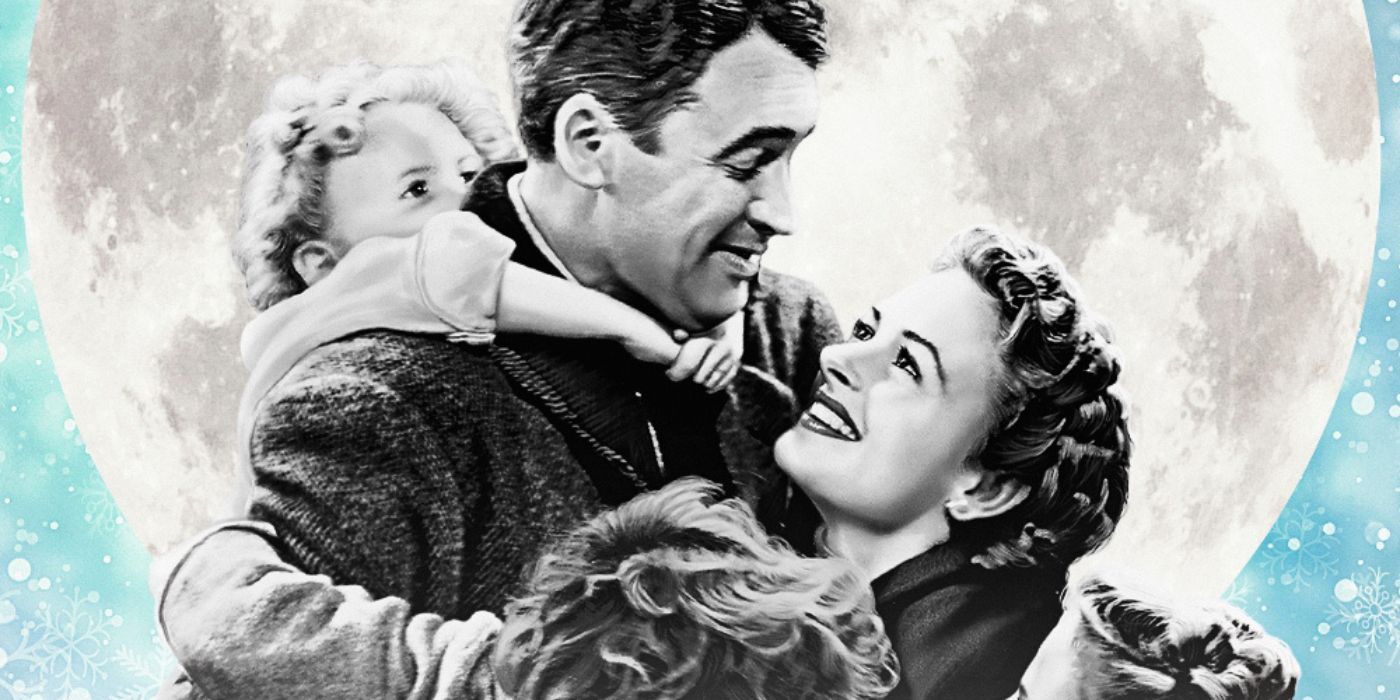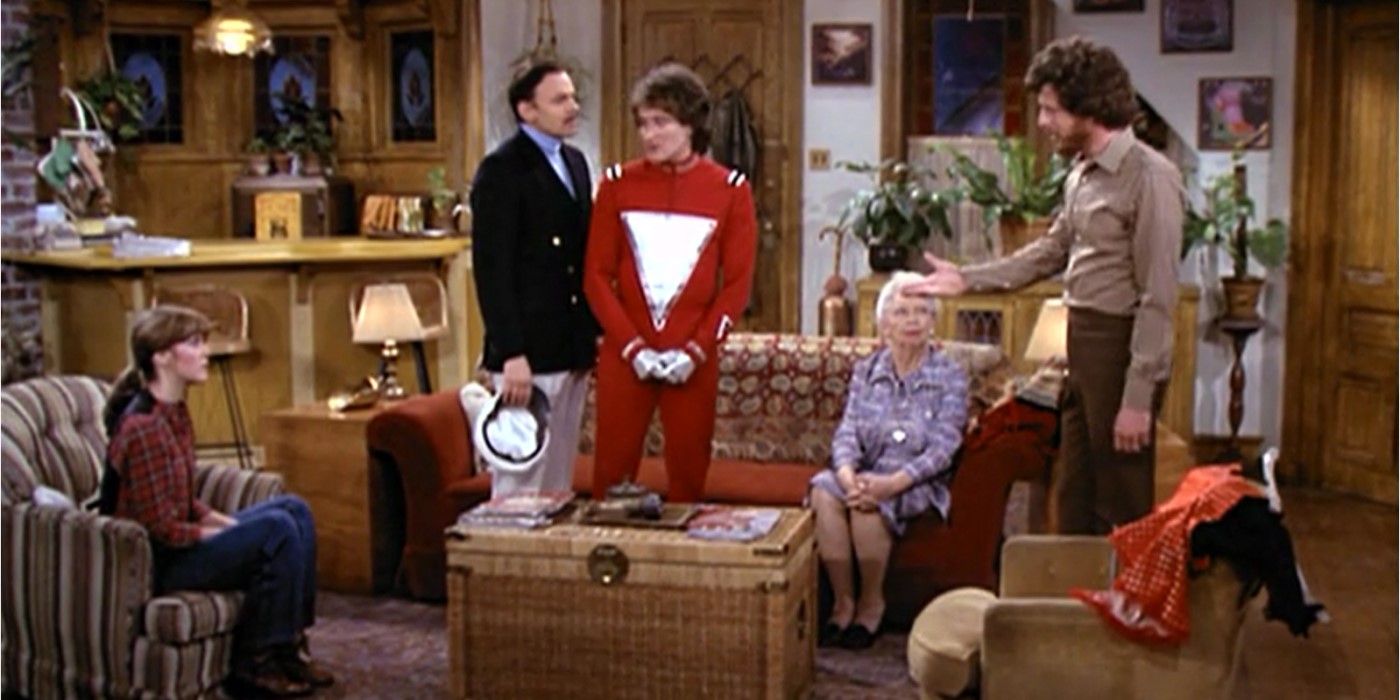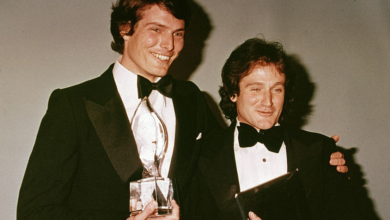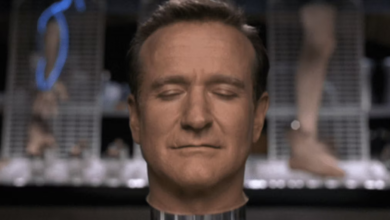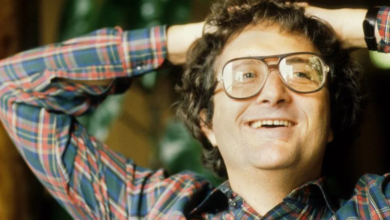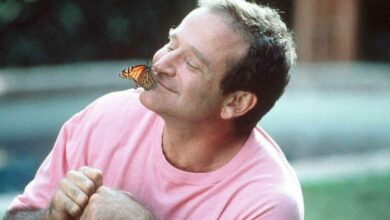‘It’s a Wonderful Life’ Shares This Strange Connection With Robin Williams
The ‘Mork & Mindy’ star helped create a historic first with the beloved Christmas classic.

THE BIG PICTURE
- It’s a Wonderful Life and Mork & Mindy both had humble beginnings but eventually gained popularity and became holiday favorites.
- The film It’s a Wonderful Life struggled to find an audience until it entered the public domain and began airing regularly on TV, resonating with viewers.
- Mork & Mindy became the first sitcom to use the core concept of It’s a Wonderful Life in an episode, showcasing Robin Williams’ comedic and dramatic talents.
It’s a Wonderful Life is an indisputable Christmas classic. Everyone knows the story of how Jimmy Stewart‘s George Bailey, having been beaten down by misfortune after misfortune, is stopped from jumping off a bridge by Clarence (Henry Travers), an angel-in-training, who shows him what life would be like in the town of Bedford Falls had he been never born. It’s a simple premise but a rewarding one, and it has been the inspiration for dozens of films and TV episodes that adapt the story into their narrative.
As a result, there have been many faces that have played the George Bailey role over the years: the titular ALF (Paul Fusco) of ALF, Al Bundy (Ed O’Neill) from Married… With Children, Saturday Night Live‘s Dana Carvey (the “It’s a Wonderful Life: The Lost Ending” skit is a must-see), and Robin Williams‘ Mork from Mork & Mindy, one of the stranger, but funniest, interpretations of the Christmas favorite. It is also one of the first adaptations of the Frank Capra classic for TV.
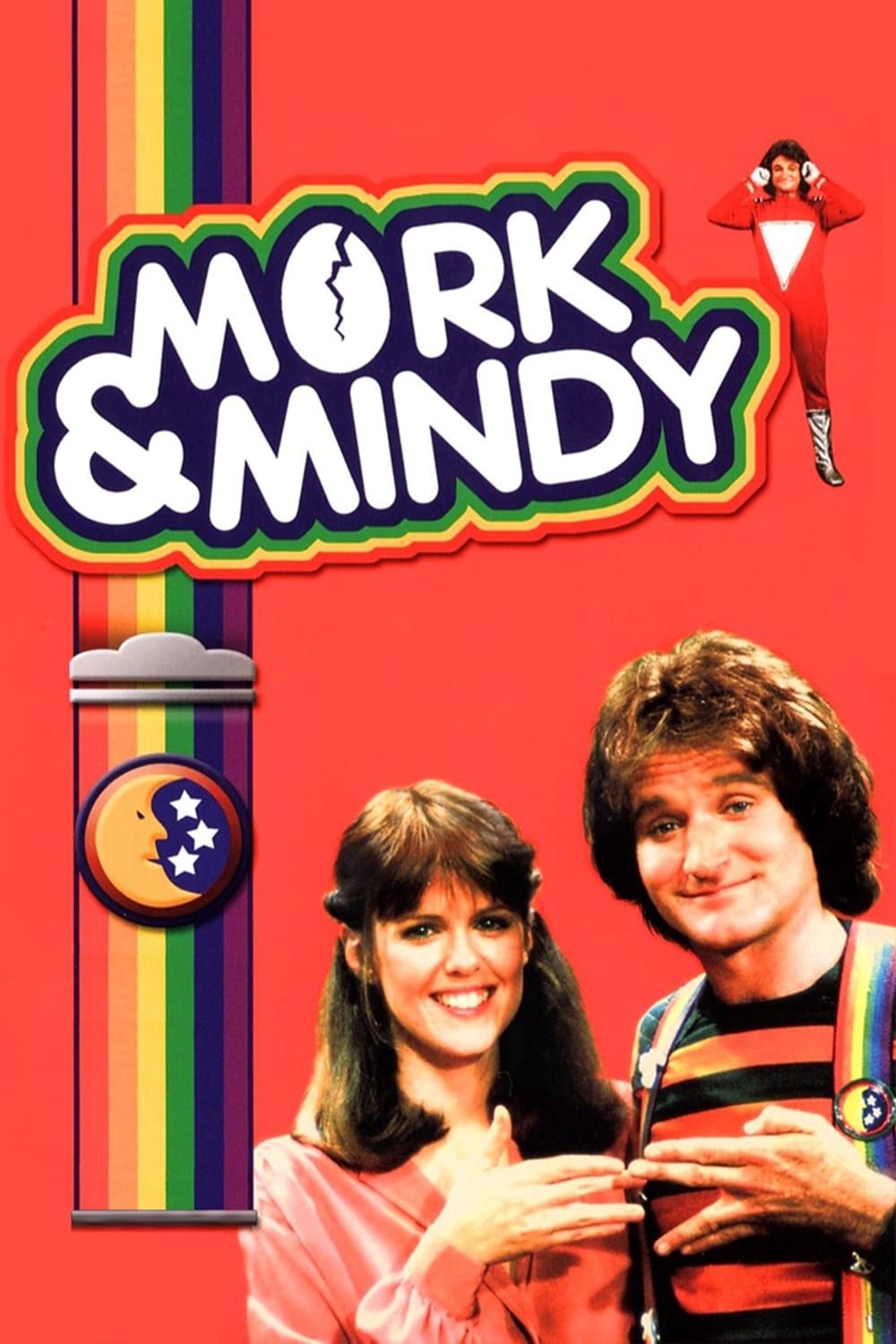
Mork & Mindy
A wacky alien comes to Earth to study its residents and the life of the human woman he boards with is never the same.
‘It’s a Wonderful Life’ and ‘Mork & Mindy’ Share Unassuming Starts
It’s a Wonderful Life walked a rocky road to achieve its status as a beloved holiday favorite, a film with a story that is definitively examined and brought to life through the festive iHeart podcast, George Bailey Was Never Born. The film premiered in 1946 and ran for about a year, never catching on with the public and disappearing off the radar with little to no fanfare. It would show up now and again on late, late movie shows, but for all intents and purposes, the film was dead. Then came 1974, and as discussed in the podcast, TV stations, looking for content, came across It’s a Wonderful Life, which had entered into the public domain after the studio failed to refile the copyright for a second term. The movie began appearing with regularity in what seemed to be every station, drawing more and more people to its timeless message that everyone matters, and everyone makes a difference. Steven Spielberg even cited the film during an interview on The Dick Cavett Show as one of two (The Searchers the other) he watches whenever it’s on, regardless of the time of year, and notes it as his number one movie.
Mork & Mindy may have had a quicker road to popularity, but it still needed to have the right cards fall at the right time, much like It’s a Wonderful Life. Mork & Mindy is one of many spinoffs from the iconic Happy Days, specifically from Season 5, Episode 22’s “My Favorite Orkan.” As told by Collider’s Reid Goldberg, the episode’s script didn’t go over well, with Ron Howard admitting, “It was an episode that didn’t read so great.” Anson Williams was less kind, calling it “the worst script in the history of Happy Days… it was unreadable, it was so bad.” Nevertheless, show creator Garry Marshall ran with it but was unable to find an actor that fit the role of Mork. How Williams came into the role is up for debate, either because actor Al Molinaro recommended him after seeing Williams in an improv class, or casting director Ronny Hallin recommended him after seeing Williams performing on the street.
Whatever the case, Williams made an immediate impression. His rapid-fire wit, his innate comic sensibilities, both verbally and physically, and his hilarious improvisations had everyone in awe. Williams’ winning performance landed him his very own show, Mork & Mindy, which debuted only seven months after his Happy Days experience — a case of striking while the iron is hot if ever there was one, and it quickly became one of TV’s greatest sitcoms.
‘It’s a Wonderful Life’ and ‘Mork & Mindy’ Make a Historic Connection
Two things in life are virtually guaranteed: It’s a Wonderful Life will be on TV over the Christmas holidays, and sitcoms will have an episode that riffs on it. But there’s always a first, and, as the George Bailey Was Never Born podcast notes in its premiere episode, in 1979, on Stage 27 of the Paramount Pictures lot, history was made when Mork & Mindy became the first sitcom to use the core concept of the film in an episode.
In the episode, appropriately named “It’s a Wonderful Mork,” Mork causes trouble for everyone in his life. He blows the opportunity for Cora (Elizabeth Kerr) to land a student for music lessons at the music store (literally blows it — Mork explains that Cora taught him how to play trumpet, and the boy flees with his mother upon hearing his less-than-perfect skills). He ruins Fred’s (Conrad Janis) new romantic relationship and with it Mindy’s (Pam Dawber) chance of landing a part-time journalism job. Having decided he’s caused nothing but problems for Mindy and her family, Mork requests that Orson (Ralph James) bring him home. Orson doesn’t deny the request but asks Mork to use the Plasma Essence Reversifier to see what life would be like for his friends if he had never come to Earth. The scene plays out before him, with Mork as an observer, meaning he can’t give a hug, a tickle, or tell Mindy jokes to cheer her up (“What do you get when you cross a German shepherd with a giraffe? A watchdog for the eighth floor”). And she needs cheering up.

Without Mork, Mindy has married a man named Cliff (Sam Freed), a freeloading gambler unable to hold down a job, forcing Mindy to work two jobs, one as a sales agent during the day and a cocktail waitress at night. Her journalism dreams have died. Cora spends her days knitting, and Fred sells the music store, using the money to see the world and start a romance with a former Ms. Teenage Bulgaria, a relationship and a dream that fell apart when the money ran out. Having seen how miserable everyone is, Mork tearfully contacts Orson to say he’s seen enough and wants him back in the present. Once things return to normal, cooler heads have prevailed and Mindy walks out to apologize for snapping at him earlier, telling Mork she would never want to lose their friendship, especially with someone who can make her laugh. This prompts Mork to tell his joke from earlier. Only Mindy knows the punchline and Mork reports back to Orson in much better spirits, saying that he may not know what value he has in life, but he does know he’s made a few people happier than they would have been without him.
“It’s a Wonderful Mork” Gave Robin Williams a Showcase for His Talents
It is an episode that demonstrates Williams’ inane talent as an actor. His manic improvisations throughout the episode are evident, and it’s to the cast’s credit that they’re able to keep a straight face with Williams on set “observing” things (it would be highly entertaining to see a blooper reel from it). It is watching a comic genius at work, but it also shines a light on his dramatic talents. His teary-eyed plea to Orson to end the scenario is quite powerful, with Williams making the moment relatable, impactful, and free of any comic moments that would lessen it. It’s a precursor to the types of performances that Williams would be noted for in his film career. It is also, sadly, especially poignant looking back from today, with Mork’s explanation of what he learned through his experience, something that one wishes Williams could have clung to in those dark days that led to his death by suicide.
As for how “It’s a Wonderful Mork” came about its historical first, producers Ed Scharlach and Tom Tenowich explain that the movie touches on that universal feeling of one wanting to know they are of value, that they matter, and it just seemed natural that the sitcom might be the right place to explore that feeling. They were right, given how often the film is referenced on TV. As pointed out in the podcast, George Bailey Was Never Born, the timing couldn’t have been better, as the late 1970s saw a marked rise in cynicism and hopelessness. With sitcoms serving as an antidote of sorts, the Frank Capra classic reminds us that no matter how cynical and hopeless you may feel, you matter.
Mork & Mindy is available to stream in the U.S. on Prime Video.

